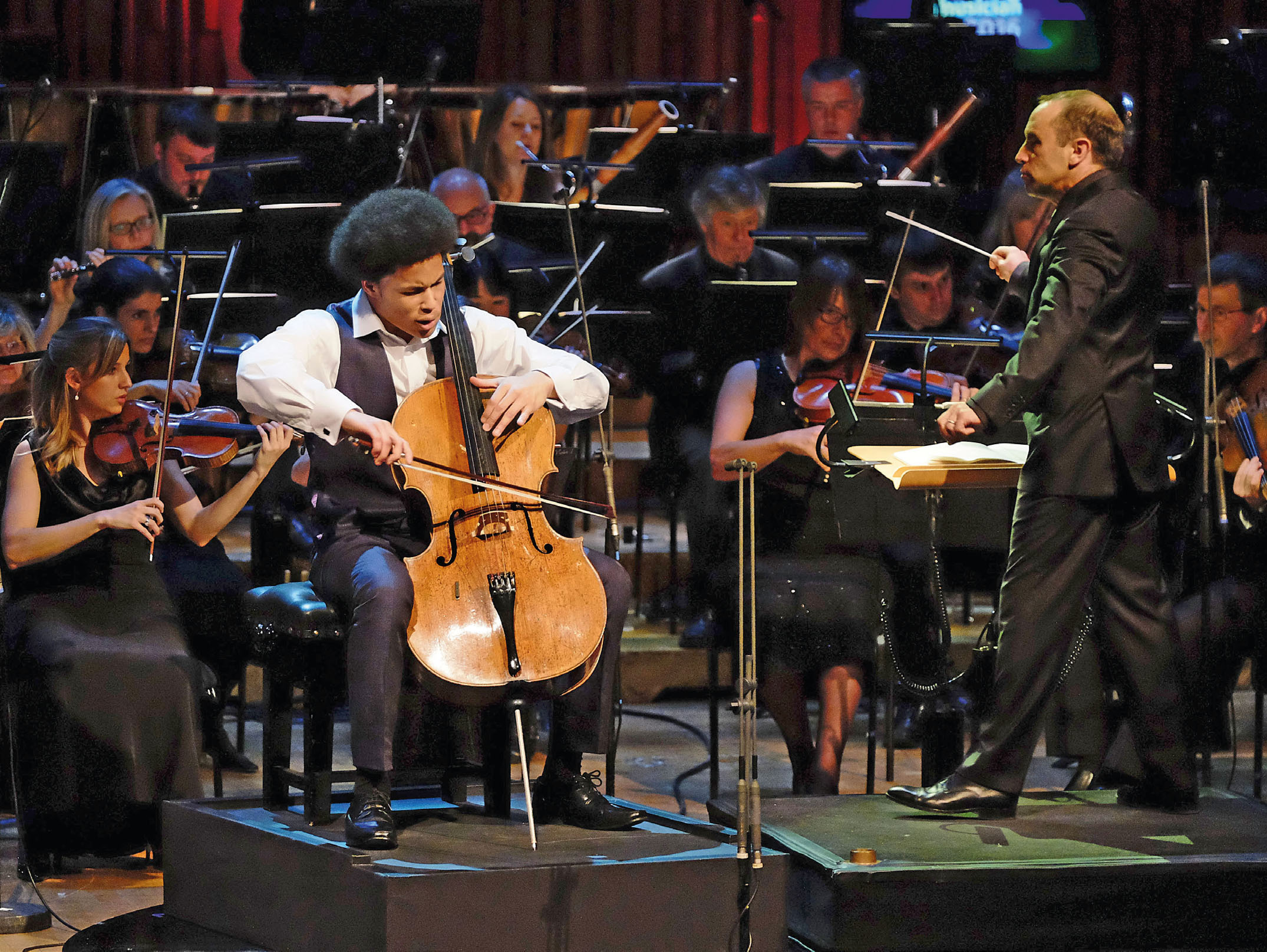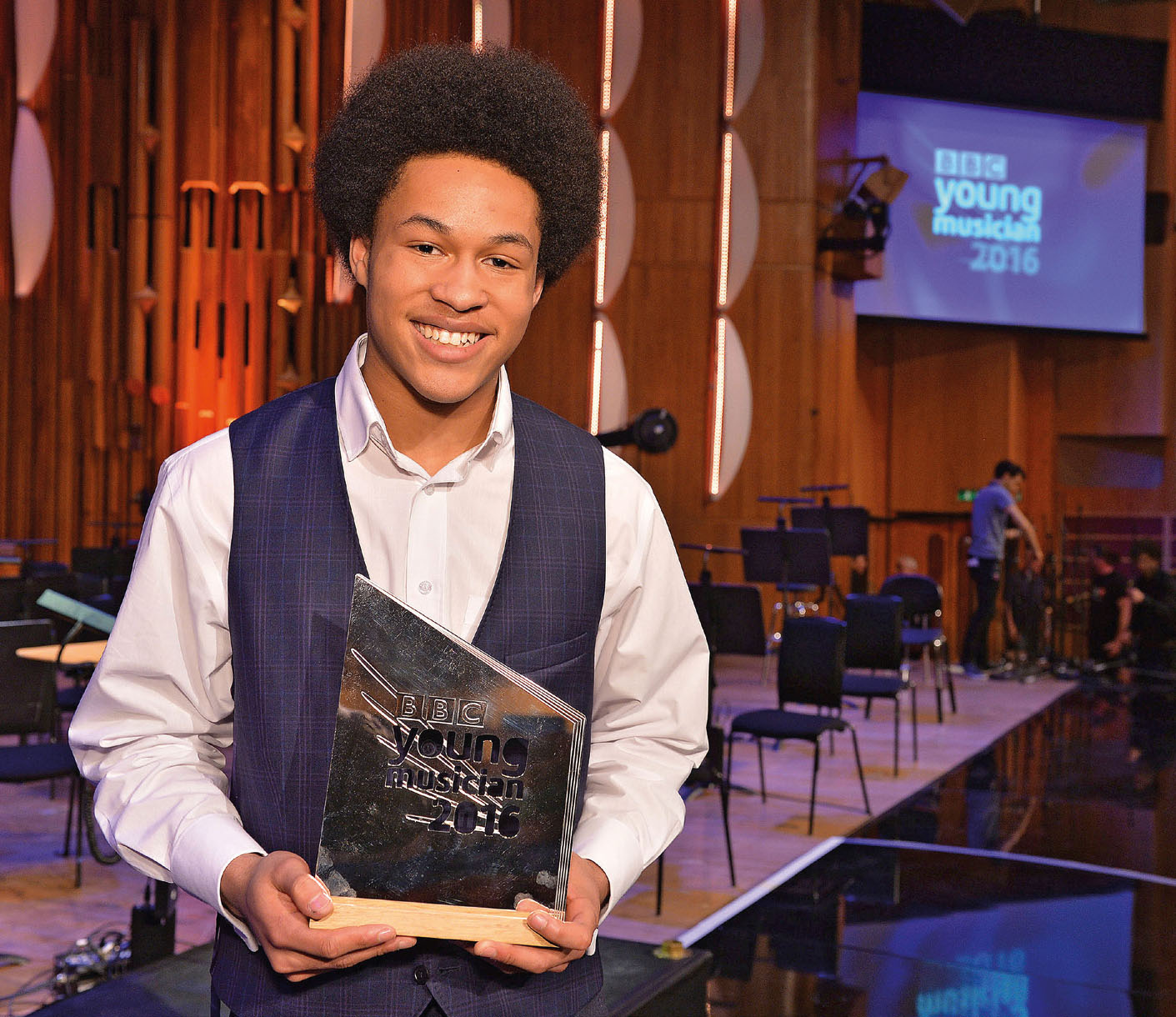
Forty years ago, as I was wading my way through a very different A-level music from what is offered today, the excitement of the newly-born BBC Young Musician of the Year sparked the imagination of many of us teenage wannabees.
We'd get taken to the odd concert if we were lucky and, of course, there were youth orchestras to enjoy; but to see someone of your own age, on the TV, living the dream, and playing to a standard you could barely imagine, was utterly inspiring, and, for the time, utterly unusual.
Today you can still see many of those early winners, at the top of their game. Looking back at the them, and a lot of the also rans, the judges should be congratulating themselves: Thomas Adès, Alison Balsom, Nicola Benedetti, Natalie Clein, Michael Collins, Colin Currie, Nicholas Daniel, Benjamin Grosvenor, Stephen Hough, Freddy Kempf, Jennifer Pike and Paul Watkins all competed here.
Showcase and opportunity
Paul Bullock has been series editor of BBC Young Musician for the past decade. ‘BBC Young Musician has the same values and aims as when it was first held 40 years ago: to showcase the UK's most talented young classical musicians and provide an opportunity in which they can grow as performers,’ says Bullock.
‘Of course, the competition continues to grow and evolve to reflect the changing world and music industry, and we're always looking at ways to make sure that it remains valued and relevant.’
Young Musician was first held in 1978 and was the brainchild of the BBC's then head of music, Humphrey Burton, together with producers Walter Todds and Roy Tipping. When it was launched it focused on four categories – brass, piano, strings and woodwind – before percussion was added in 1994.
Other structural changes have been introduced over the years, including the introduction of a semi-final in 2010 that now sees three musicians competing in the Concerto Grand Final. In 2014 BBC Young Musician also introduced a new award for jazz musicians: BBC Young Jazz Musician, which will return later this year.
Bullock believes the quality of musicianship gets stronger every year. ‘Just a glance at the list of alumni is a reminder of how important this competition has been for the UK's classical music industry. The talent that has come through the last few competitions – Sheku Kanneh-Mason, Martin James Bartlett and Laura van der Heijden, for example – shows that BBC Young Musician continues to attract and showcase the very best.’
The BBC may be getting some excellent programmes, the audience can enjoy a good few evenings of entertainment. But what's in it for the young musicians, performing at a crucial stage in their development, in a very public and often judgemental arena?

Sheku Kanneh-Mason performs Shostakovich's cello concerto at the Barbican, in the 2016 grand final © BBC/MARK ALLAN

Sheku Kanneh-Mason: ‘All this is a fantastic learning experience’ © BBC/MARK ALLAN
‘Every musician that enters is heard by an expert panel and receives thorough feedback on their performances,’ says Bullock. ‘This is true at each stage of the competition.
‘As the competition progresses they receive feedback from competition alumni – in particular, this year's semi-finalists will have the chance to meet and receive advice from our competition ambassador Nicola Benedetti.
‘The ethos of the competition is to provide a supportive and nurturing environment for all the musicians who take part. In the televised rounds this includes the presence of a professional psychologist with huge experience working with young people, specifically in televised competitions.’
After five competitions in Cardiff the category finals and the semi-final are on the move to the new Royal Birmingham Conservatoire.
The Grand Final usually moves with each competition; this year it is returning to Symphony Hall, Birmingham for the first time since 1996, and the finalists will be working with the City of Birmingham Symphony Orchestra, conducted by Mark Wigglesworth.
Inspiration and aspiration
The competition is, necessarily, aimed at performers at the top of the tree – but Bullock believes that as well as entertainment, it also acts as an inspiration to thousands of children at an earlier stage of their musical careers.
‘We want the competition to be a showcase, something to aspire towards.
The documentary elements in the series are also designed to give an insight into what goes in to achieving this standard of performance. It's a hugely valued part of the cultural life of the UK and for me, a constant reaffirmation of the joy of music-making.
‘Everyone involved in running and producing BBC Young Musician does so with a real sense of pride and commitment – it's one of those rare jobs that is always real privilege to be involved in.
‘Seeing the emergence of these incredible role models, who in turn will inspire future generations, is another thing that makes this job so special. To witness the 2016 final convinced me that the future of classical music in this country is in safe hands.’
And that 2016 winner, cellist Sheku Kanneh-Mason, backs up Bullock's comment in an interview with the BBC. ‘I really don't think this competition is only about winning,’ he says. ‘Going through the process of preparing for each round, learning how to focus on the music above all else and to perform under pressure … all this is a fantastic learning experience and will improve you as a musician.’
Plans for 2018
- BBC Young Musician 2018 launches on BBC Four on 6 April with complementary coverage on BBC Radio 3
- This year sees a brand new series of podcasts presented by 2016 finalist Jess Gillam
- All performances from the series will be available to view in full on the BBC Young Musician website
- The final of this year's competition will take place on Sunday 13 May at Symphony Hall Birmingham
- 2018 will also see the first ever BBC Young Musician Prom, which will feature performances from former winners and finalists. Further information will be announced when the Proms programme launches on 19 April








